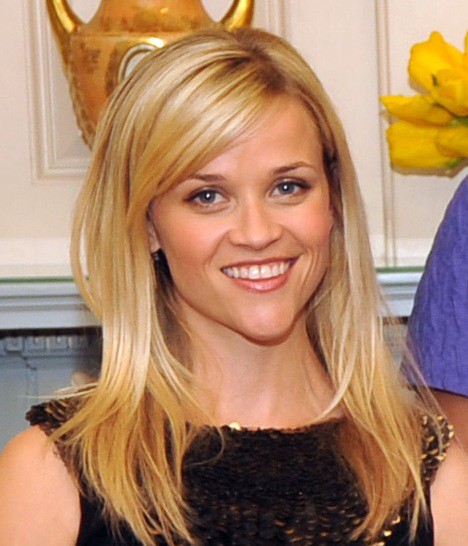Earlier
this week, Reese Witherspoon spoke at the Glamour Women of the Year event, and in her fantastic, passionate, feminist speech, she talked about why
she started Pacific Standard, her production company. Witherspoon talked about how she would see
scripts on a regular basis, and the common theme for the female characters was
that they were always asking the men in times of need, “What do we do
now?” That is her most hated line, she said, because it suggests that women don’t have agency in their own lives. That they constantly need to
be saved by men. That they can’t save themselves or others.
So
she took her own money (which is a no no in Hollywood) and, because she was a
voracious reader, was able to secure (in partnership with her producing partner
Bruna Papandrea) two books with women at the center of the stories that had not
yet been published: “Wild” and “Gone Girl.” Those films — the first two movies
from her company — both earned Oscar nominations and became financial
successes.
Witherspoon is an example of a person in Hollywood who saw a problem and came
up with a solution to fix it. She asked herself, “What do we do now?” and did it.
That’s
a question I have also been pondering of late, as the issue of gender inequality in
Hollywood has reached peak media saturation. Or at least it feels like it has reached peak
media saturation. It feels like the female-focused stories have escalated in the trades as
well as in the mainstream media, which has been especially interested in high-profile actresses talking about not being paid equally.
When
I founded Women and Hollywood eight long years ago, I felt at the beginning that
I was in an echo chamber, just hearing my own voice bounce back at me. Then I found
Martha Lauzen’s work at San Diego State. Dr. Lauzen has been tracking this
issue before anyone else. Then I heard Geena Davis. Then I discovered Twitter.
Then I found Stacy Smith at the Annenberg Center at USC. Then I met women in LA
who were working on the lack of opportunities for women directors. The work of
the Female Filmmaker Initiative which is a partnership between Sundance and Women and Film LA, based on
research done by Smith’s center at Annenberg, has given us tools to move the
conversation in an extraordinary new way.
Those
of us who work on this issue day in and day out are heartened by the growth of
the conversation. Education is how you make change. I would argue that while it
may seem that the conversation has crested, we must remember that it is still at
the beginning. I’ve been thinking a great deal about how Women and Hollywood, which has been around since before the conversation became this robust and has helped fuel the conversation get to where it is today, should do next. Our goal continues to be to amplify women’s
voices and to keep educating, advocating and agitating for gender equality.
I
can’t say I’m not nervous about what’s going to happen next on this issue, as
I’ve been watching the situation for a long time. But what keeps me going is being a half-jaded, half-optimistic person. Here’s what makes me
nervous.
I’m nervous because now the first question I’m being asked of late is why
haven’t things changed when everybody’s talking about it. This reminds me how
little people understand how deeply embedded the sexism is in Hollywood (and
the rest of our culture). There are layers and layers of sexism — lots of conscious and lots of unconscious bias that needs to be peeled away on the way to
change. This is not just about one woman getting a job. This is about systemic
change. This is about how women can have careers if they don’t only have
successes (read this story from Rebecca Keegan
about what happened to Elaine May’s career after “Ishtar”).
I’m
nervous that people are going to get sick about hearing about this topic and
next month we’ll be on to the next topic du jour. Systemic change cannot be based on a
topic du jour.
I’m
nervous that people expect success quickly. The dominant narrative in
Hollywood is still all about men. The men have access to the money, the
multiplex and the prestige.
But
I am so optimistic and impressed with all the women putting themselves on
the line by speaking out.
This
conversation has come so far that studio heads cannot avoid talking about it.
They are on the record. Now they need to interview and hire women filmmakers, as
well as make more stories that represent half the planet.
So
to answer the question that Reese Witherspoon posed, what we do now is stay the
course. Focus and keep pushing. Figure out ways to work together more.
Understand that while there may be more stakeholders in this issue, working together will get us farther than the alternative. That we need to
focus on the grassroots, use social media smartly and figure out ways to talk to
the film schools and film programs that are training the future storytellers.
Continue to make sure women’s names get into the mainstream. Make sure that we
highlight women’s successes at the box office big and small. Remind people that
change does not happen in a straight line, but that there will be setbacks and bumps
on the road. And remember at all times that this is not just about women — this
is about our culture and our world — and having more women’s stories and
diverse stories will be better for all of us.







